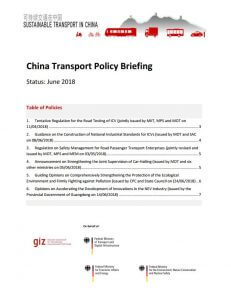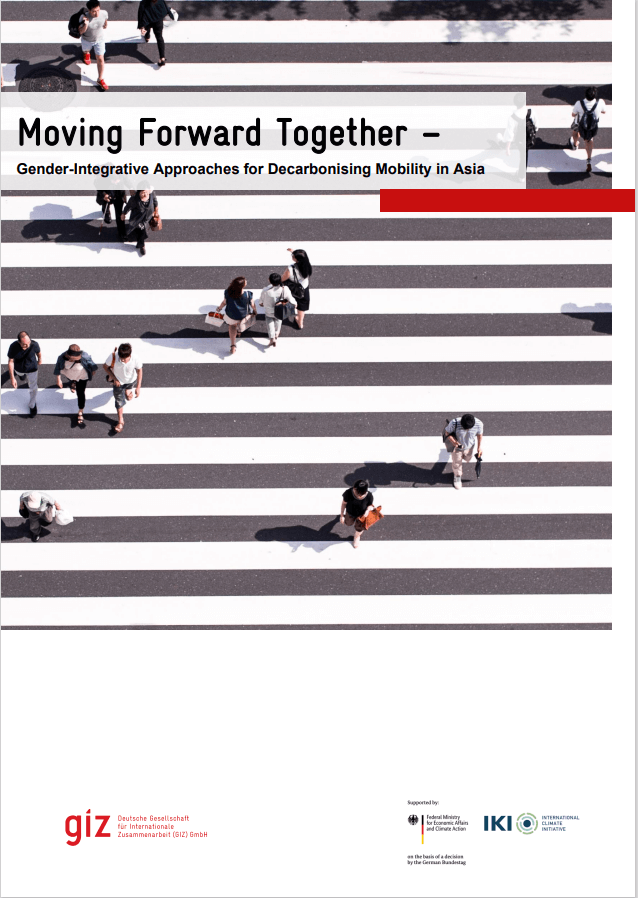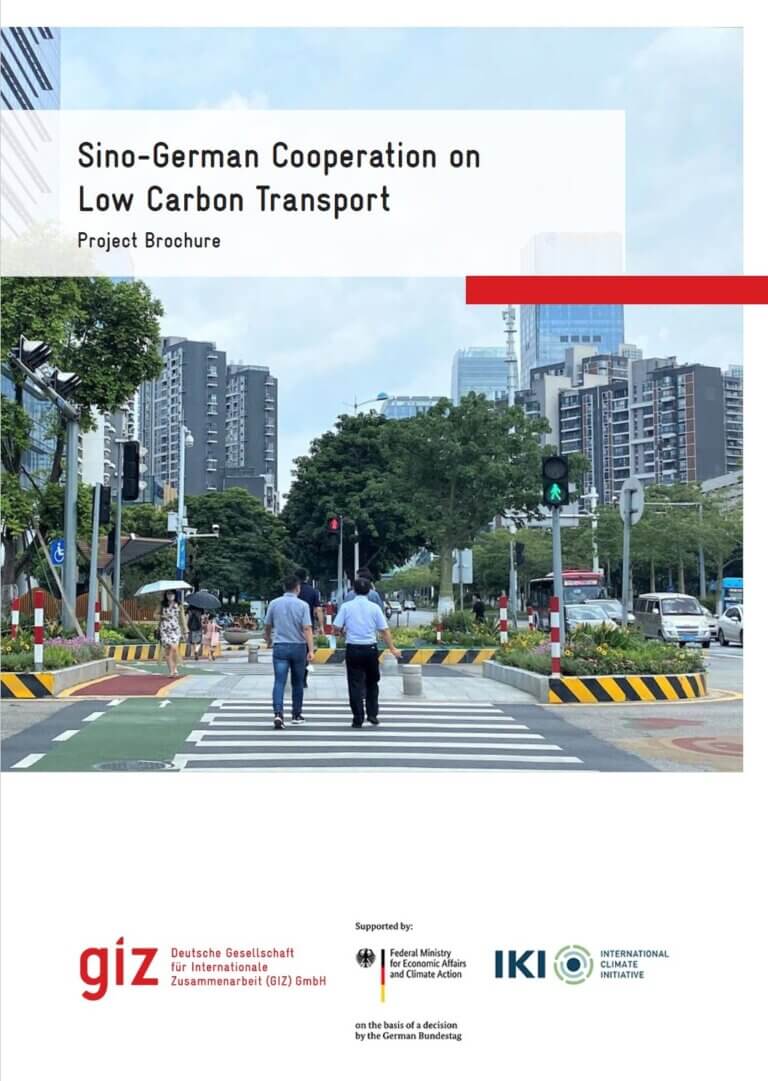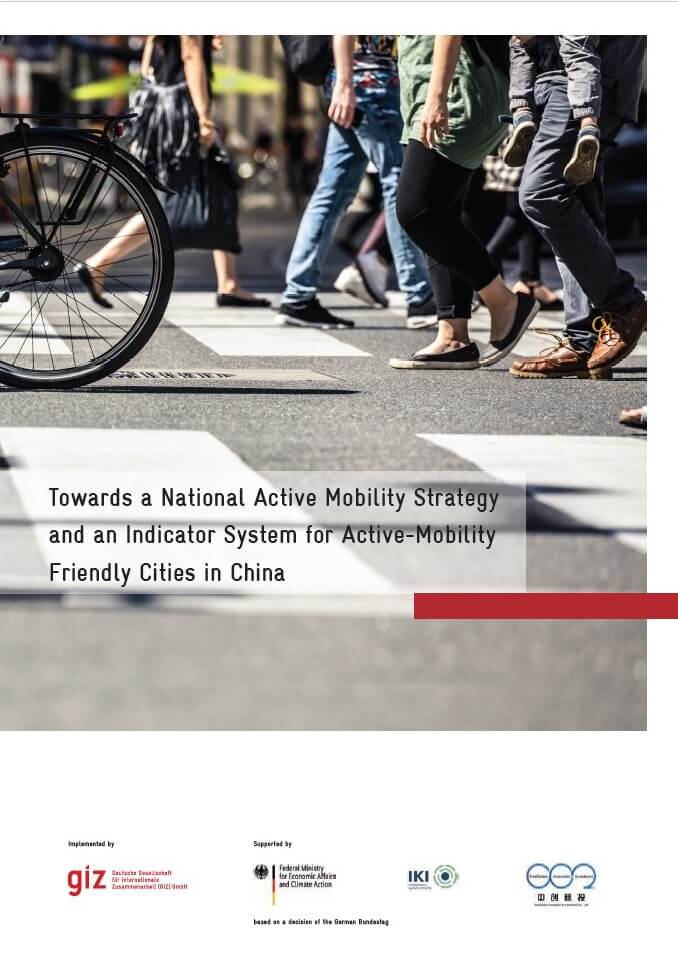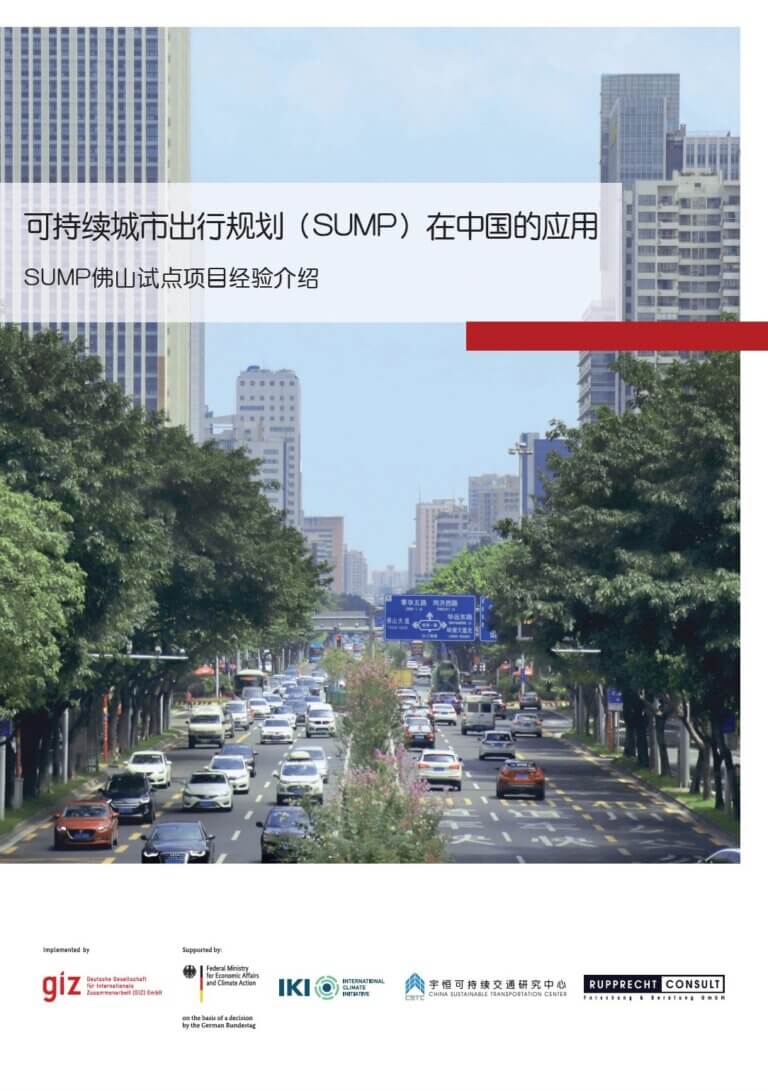The new China Transport Sector Policy Briefing is here!
In our new China Transport Sector Policy Briefing, the Sustainable Transport Team at GIZ in China provides you with a monthly summary of new important policies in China’s transport sector.
Please click here to download: Transport Sector Policy Briefing – June 2018
This month, it is all about Intelligent and Connected Vehicles (ICVs), regulations for road safety, car-hailing, the fight against air and environmental pollution, and the future of electro-mobility.
ICVs, road safety, car-hailing, pollution, and the future of electro-mobility
Since Chinese Premier Li Keqiang visited Toyota in Japan, Chinese ministries have started to take a closer look at hydrogen. Numerous events on the topic have been held and the Provincial Government of Guangdong already suggested more support for innovations in the New Energy Vehicle (NEV) industry. But not only hydrogen, batteries have also received a lot of attention. After Shenzhen’s bus fleet had been completely electrified in 2017, Canton and Zhuhai are now set to follow suit until end of 2018.
Shenzhen is not only a pioneering city in the area of electro-mobility, but also a hub for start-ups and innovations. That is why next to IT giants such as Huawei and Tencent, the city is also home to a large start-up community around ICV topics. Unsurprisingly, Shenzhen will now be one of the first cities to allow ICV Road Testing. Furthermore, the Chinese Ministry of Industry and Information Technology (MIIT) and the Standardization Administration of China (SAC) in June 2018 published a Guidance on the Construction of National Industrial Standards for ICVs.
The long overdue revision of regulations on road safety for passenger transportation companies took effect on 1 June 2018. Not only does the revised regulation prescribe regular trainings and health check-ups for drivers, but also fixed resting times. Everyone who has seen their taxi driver doze off behind the wheel will be thankful.
On 5 May 2018, the Chinese government issued a Notice on the topic of car-hailing, according to which platforms that operate illegally have to stop their operations immediately and will have their mobile applications banned. Only one day later, a driver of the world’s largest ride-hailing platform Didi kuaiche murdered a 21-year-old flight attendant, sparking the roll-out of audio recordings on all Didi kuaiche journeys (of course, no concerns about data protection here). On 11 May 2018, the Ministry of Transport (MoT) reacted with the issuance of a document on a credit system for ride-hailing platforms, suggesting this would force such platforms to always act in accordance with the law.
Lastly, the Communist Party and the State Council published their newest foray against environmental pollution. In the area of freight transport, this mainly concerns diesel trucks and ships. Not only do they ask for a shift from road to rail, but also a binding National 6 Standard for trucks starting on 01 January 2019, the use of liquified natural gas (LNG) for ships, and cleaner energy for the transport sector in general. A stronger monitoring of emissions and the support of electro-mobility are at the top of the agenda – not only in China, but also in Germany.
We wish you a pleasant read-through and welcome your suggestions and comments!

